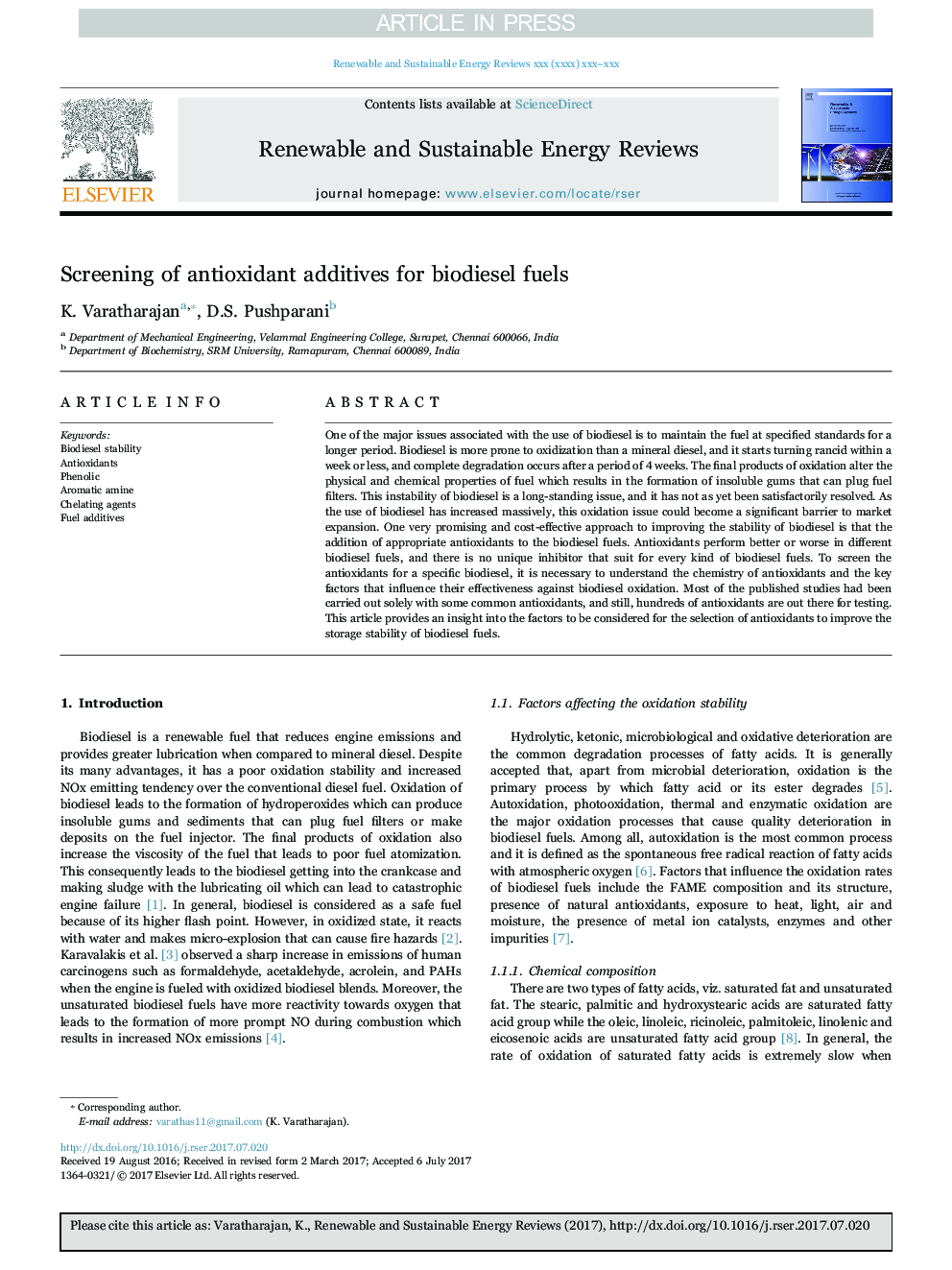| Article ID | Journal | Published Year | Pages | File Type |
|---|---|---|---|---|
| 8111730 | Renewable and Sustainable Energy Reviews | 2017 | 12 Pages |
Abstract
One of the major issues associated with the use of biodiesel is to maintain the fuel at specified standards for a longer period. Biodiesel is more prone to oxidization than a mineral diesel, and it starts turning rancid within a week or less, and complete degradation occurs after a period of 4 weeks. The final products of oxidation alter the physical and chemical properties of fuel which results in the formation of insoluble gums that can plug fuel filters. This instability of biodiesel is a long-standing issue, and it has not as yet been satisfactorily resolved. As the use of biodiesel has increased massively, this oxidation issue could become a significant barrier to market expansion. One very promising and cost-effective approach to improving the stability of biodiesel is that the addition of appropriate antioxidants to the biodiesel fuels. Antioxidants perform better or worse in different biodiesel fuels, and there is no unique inhibitor that suit for every kind of biodiesel fuels. To screen the antioxidants for a specific biodiesel, it is necessary to understand the chemistry of antioxidants and the key factors that influence their effectiveness against biodiesel oxidation. Most of the published studies had been carried out solely with some common antioxidants, and still, hundreds of antioxidants are out there for testing. This article provides an insight into the factors to be considered for the selection of antioxidants to improve the storage stability of biodiesel fuels.
Related Topics
Physical Sciences and Engineering
Energy
Renewable Energy, Sustainability and the Environment
Authors
K. Varatharajan, D.S. Pushparani,
